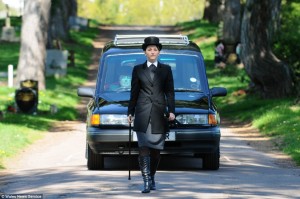03 Jul The Changing Face of the Funeral Profession
 I was reminded of a popular brainteaser from my childhood today: “A man and his son were in a terrible accident. The man was horribly injured and the son was rushed into emergency surgery. The surgeon walked into the room, looked at the boy and said ‘I can’t operate on this patient; he’s my son’. Who was the surgeon?”
I was reminded of a popular brainteaser from my childhood today: “A man and his son were in a terrible accident. The man was horribly injured and the son was rushed into emergency surgery. The surgeon walked into the room, looked at the boy and said ‘I can’t operate on this patient; he’s my son’. Who was the surgeon?”
As many of you recall (or deduced), the surgeon was the boy’s mother. Why was that answer so difficult back then? Instead of blaming narrow-mindedness, let’s just admit the answer simply wasn’t what most of us expected based on our personal experiences.
Similarly, funeral service has traditionally been a male-dominated profession. Today, 57 percent of mortuary science students in the United States are women. Many of these women possess the skills and traits needed in a funeral director, including communication skills, compassion, a desire to comfort those coping with a death, as well as organizational and event-planning skills.
Funeral service also has commonly been a “family” career that was passed down from one generation to the next. Today, people with no family ties to the industry are choosing funeral service as a career and finding it very rewarding. In fact, many of today’s mortuary school graduates do not have family members working in funeral service.
There are many opportunities for people thinking about joining funeral service. With more than 20,000 funeral homes in the United States, there is a need for well-trained funeral service professionals with a variety of skills. As well as providing support to the bereaved and arranging funeral ceremonies, a funeral service professional:
- Arranges for removal of the deceased from the place of death.
- Prepares the body according to the wishes of the survivors and requirements of the law.
- Secures information for legal documents.
- Files death certificates and other legal papers.
- Assists survivors with details for filing claims for death benefits.
There’s a lot more involved in the role of a funeral director than most people realize. Take it from this female funeral director who is also the first in her family to join the profession.

